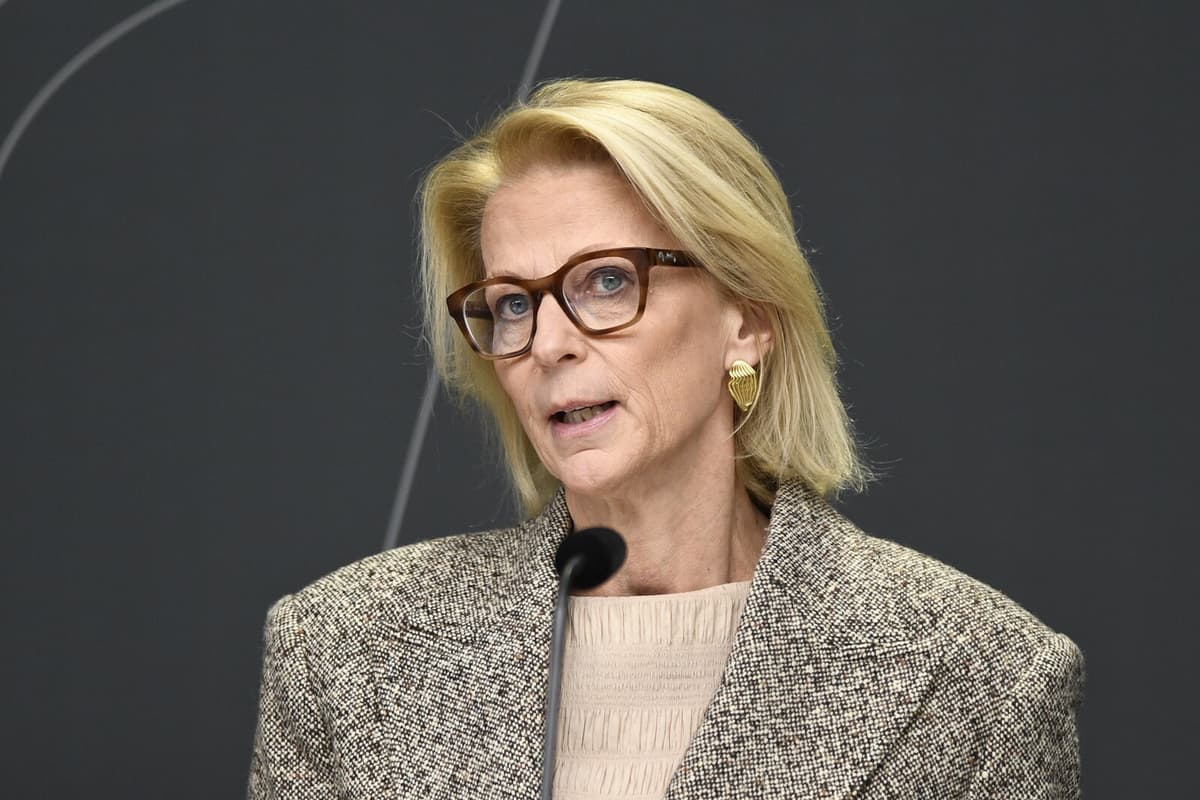War, financial crisis or pandemic may require deviations from budget rules even in the future, according to Elisabeth Svantesson.
But large investments – such as the nuclear power financing of perhaps hundreds of billions that the government wants to put in place – should in principle not be defined as a deviation from the budget, according to the Minister of Finance.
I don't see it, says Svantesson.
It's a typical example of a long-term investment that others will make investments in. It's not the state itself that will borrow, build, own and operate these. But the state will be involved as a guarantor, to get it started, and then temporarily borrow.
"It's a matter of life and death"
But this message comes with a caveat.
These investments, the basis is that everything should be within the framework. But it's important to remember that we don't have a clear proposal, says she.
The Ukraine support is a completely different matter, according to Svantesson.
This is an existential issue, which is so important. It's a matter of life and death, says she.
She doesn't want to set a ceiling for how large the Swedish Ukraine support can become – for example, if the US stops its support when Donald Trump takes office as president in January.
We don't know exactly how long the war will last or what the US will do. But it's about a war in Europe where we don't want Putin and the Russians to win, says she.
Had wanted a deficit target
The conclusions of the review of the public sector's financial targets, which has now been submitted to the Minister of Finance, are already known. They were presented by a committee with all parliamentary parties represented in October and have the support of six out of eight parliamentary parties, with around 90 percent of the votes in parliament.
The Confederation of Swedish Enterprise and the Swedish Trade Union Confederation have criticized the proposal and had – like the Left Party and the Green Party – wanted to introduce a deficit target instead of giving even greater room for loan-financed budget investments in the future.
The new balance target – which replaces the current target of a budget surplus of 0.3 percent of GDP over a business cycle – is estimated to increase the room in the state budget by around 20 billion compared to today from 2027.
Minister of Finance Elisabeth Svantesson rejects the proposal for a deficit target. She believes that protection is needed for future generations of Swedes against "enormous deficits" and a significantly higher national debt, which she sees as a risk if one starts to allow regular deficits.
The Minister of Finance and Hans Lindberg, who was the chairman of the committee behind the report submitted to the government, also see a great risk that a deficit target would create situations where the EU Commission, in line with new frameworks at the EU level, regularly begins to interfere with Swedish budget priorities.






